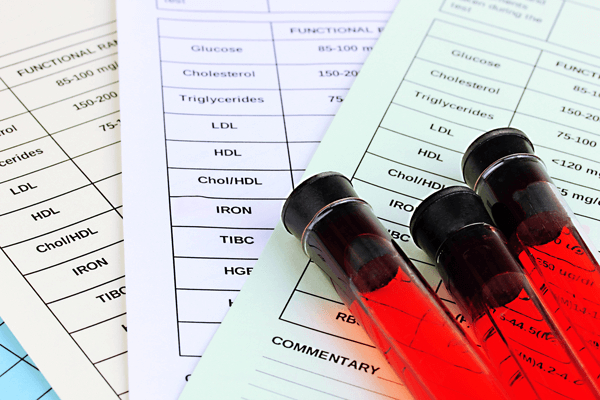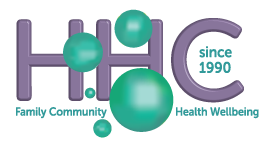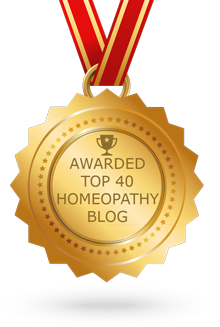Why do we need iron?
Approximately 1.1 million Australians are iron deficient.
Without adequate iron, the body can struggle to produce enough healthy red blood cells, which can result in reduced oxygen delivery and iron-deficiency anaemia causing symptoms such as fatigue, weakness, dizziness and shortness of breath. Results show that 35% of Australian women who are pregnant have anaemia, which is increased to 50% among Aboriginal and Torres Strait Islander women.
Iron is a vital mineral that is crucial for supporting several bodily functions such as immune system, energy production, cognitive performance and overall well-being. Iron is a trace mineral that helps to produce haemoglobin, a protein in red blood cells responsible for carrying oxygen from the lungs to the rest of the body.
Iron is needed for:
- producing haemoglobin and oxygenating the body
- helping to create energy at the cellular level (particularly in mitochondria)
- supporting the production and function of immune cells, which help the body fight off infections
- enhancing brain functioning, especially memory and concentration by supporting production of neurotransmitters
- helping to detoxify the body by producing enzymes that help break down and eliminate toxins
- maintaining healthy cells and tissues throughout the body by ensuring proper oxygenation and nutrient transport
- promoting the growth of new cells and tissues, ensuring that skin, hair and nails remain vibrant and healthy
- regulating body temperature by promoting proper blood circulation and heat distribution
How to check your iron levels?

If there are any symptoms such as tiredness and fatigue, it’s advisable to do a blood test (in case of anaemia, a blood test may be required every 3-6 months). Iron levels are measured in blood tests:
- serum ferritin test – ferritin is a protein that stores iron and low ferritin levels usually indicate iron deficiency (recommended levels: 30–300 ng/mL for men and 30–200 ng/mL for women)
- serum iron test – measures the actual amount of iron in the blood (recommended levels: 10–30 micromoles per litre)
- full blood count – provides clues about iron levels.
Iron sources

To maintain good levels of iron, the emphasis should be on eating iron-rich foods. Iron has different forms (such as heme and non-heme iron) with distinct characteristics and functions in the body, including how our body absorbs and uses iron. If iron levels are low, supplementation and/or iron infusion may be necessary; however, these vary in terms of benefits, absorption, tolerability and effectiveness, which are summarised below.
| Type of Iron | Source | Absorption Rate | Common Foods/Forms |
| Heme Iron | Animal-based foods | Higher absorption rate & more bioavailable | Red meat (beef, pork, lamb), poultry (chicken, turkey), seafood (fish, oyster, clams), liver |
| Non-Heme Iron | Plant-based foods, fortified | Lower absorption rate, but Vitamin C (citrus fruits) supports absorption | Lentils, beans, spinach, kale, quinoa, tofu, fortified cereals, nuts, pumpkin seeds |
| Ferrous Sulfate | Iron supplement | Common & effective but may cause GI issues | Tablets, liquid supplements |
| Ferrous Gluconate | Iron supplement | Gentle on the stomach | Tablets, liquid supplements |
| Ferrous Fumarate | Iron supplement | Common & effective, provides higher amount of elemental iron per dose, but may cause GI issues | Capsules, tablets |
| Iron Bisglycinate | Iron supplement | Highly bioavailable, well-tolerated, bound to amino acids helping to improve absorption | Capsules, tablets |
| Iron Polysaccharide | Iron supplement | Better absorbed, fewer side effects, gentler | Capsules, tablets |
| Fortified Iron | Fortified foods | Varies (non-heme iron) | Fortified cereals, bread, plant-based milks |
Iron absorption
Certain herbs and botanicals can support the body’s ability to absorb and utilise iron. For example, nettle leaf has a high iron content and is used in teas or tinctures; yellow dock root can improve iron absorption and support liver health, and dandelion root promotes liver health and improves digestion, which is key to iron absorption. Incorporating fermented foods, such as sauerkraut, kimchi or kefir, into diet can also support digestion and absorption of iron. It is also important to focus on mindful eating, chewing food thoroughly and consuming balanced meals, which can all help with ensuring the digestive system functions well.
In turn, there are certain foods that can hinder iron uptake, such as coffee and tea as they include tannins which can interfere with iron absorption, and calcium which can compete with iron for absorption, so it’s best to separate the intake of calcium-rich foods (like dairy) from iron-rich meals.
When to see a homeopath?
Homeopathy is often sought for iron-deficiency anaemia, but it can also help with symptoms such as fatigue and weakness, poor circulation, digestive issues, sleep, and supporting mental and emotional health. Homeopathy treats the person as a whole addressing the root cause of iron imbalances whilst personalising the treatment. By stimulating the body’s inherent healing capacity, homeopathic remedies work to balance iron levels while considering the unique constitution of each individual. In addition to homeopathic remedies, homeopaths can also discuss options for supplementation and at Harbord Homeopathic Clinic, we offer a range of iron supplements suitable for individual needs.
Summary
Iron is a vital mineral to support vital functions in the body and ensuring adequate intake is essential for maintaining our overall health and well-being. Any imbalances can have significant effects on both the body and mind, therefore, it is important to support optimal iron levels through nutrient-rich foods, whether through heme iron in animal products or non-heme iron in plant-based foods. For those who need supplements, various forms of iron are available to support iron levels and reduce the risk of deficiency. Balancing both food and supplement sources, along with considering factors that affect absorption, will help optimise the iron intake. As homeopaths, we will assess your symptoms and offer a natural, gentle, and individualised treatment to address iron-related issues, helping restore vitality, well-being and energy levels.
References
Pasricha SR, Flecknoe-Brown SC, Allen KJ, Gibson PR, McMahon LP, Olynyk JK, et al. Diagnosis and Management of Iron Deficiency Anaemia: A Clinical Update. The Medical Journal of Australia. 2010;193(9):525-32.
Carter E, Lane K, Ryan E, Jayaratnam S. Incidence of iron deficiency Anaemia during pregnancy in Far North Queensland. Aust J Rural Health. 2023 Feb;31(1):124-131. doi: 10.1111/ajr.12929.
Additional reading sources:
https://www.healthdirect.gov.au/iron-infusion
- Importance of iron for our well-being - 10/04/2025
- How to improve our vital force and detox from heavy metals - 26/07/2022
- Homeopathy and Naturopathy…How do they differ? - 17/05/2021



